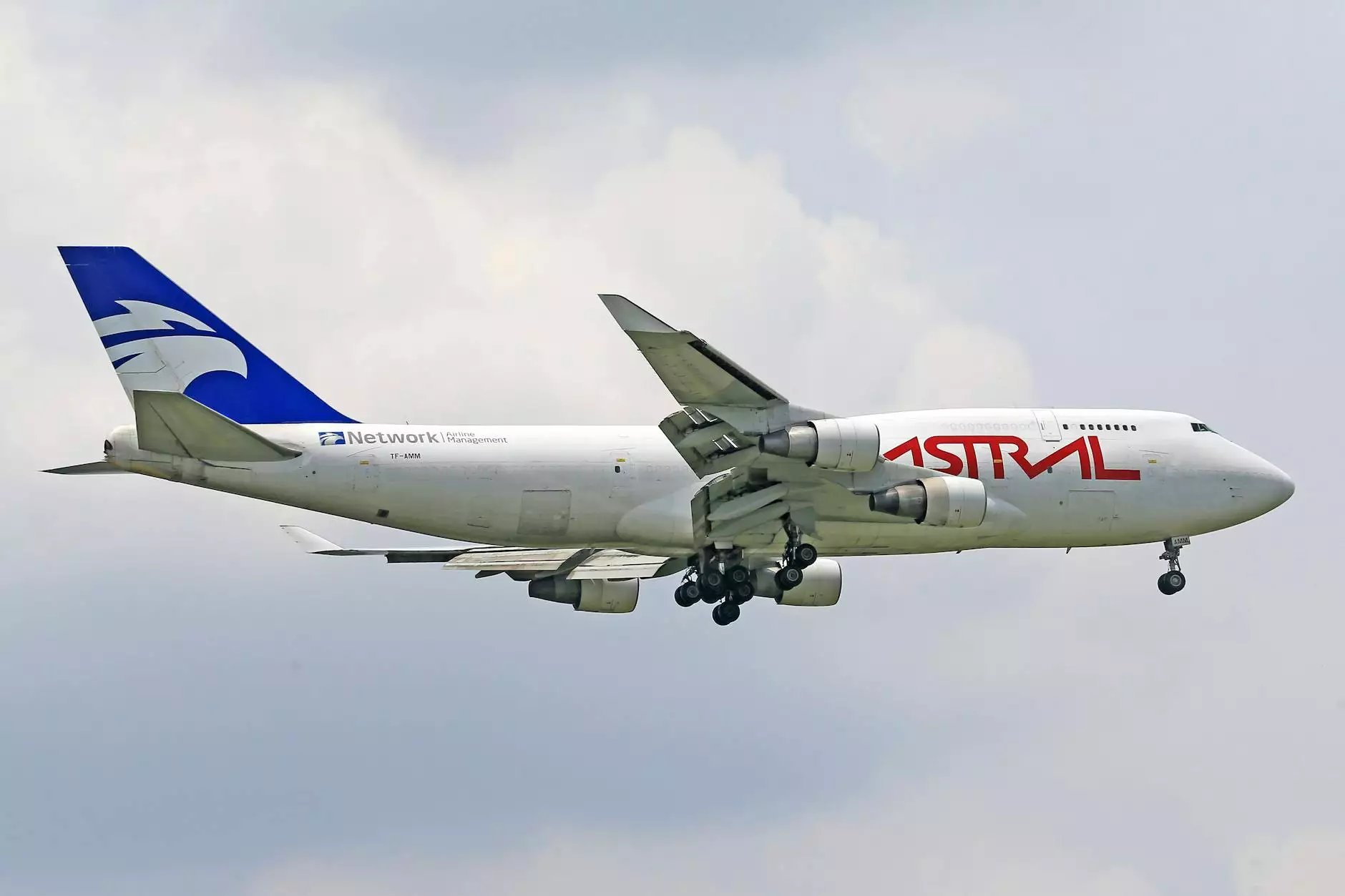Understanding Domestic Air Freight Quotes

In an increasingly interconnected world, businesses are exploring faster and more efficient ways to move their goods. One standout solution is domestic air freight, which offers unparalleled speed for shipping across vast distances within a country. However, to effectively utilize this mode of transport, it is vital to understand how to obtain an accurate domestic air freight quote.
What is Domestic Air Freight?
Domestic air freight refers to the shipment of goods within the same country using air transportation. This method is ideal for time-sensitive deliveries and high-value items that require expedited shipping. Whether you are a small business or a large corporation, air freight can help you meet your logistic needs while maintaining a competitive edge.
Why Choose Air Freight for Domestic Shipping?
There are several compelling reasons to choose air freight for domestic shipping, including:
- Speed: Air freight is the fastest shipping method available, ensuring timely delivery of goods.
- Reliability: Airlines operate on strict schedules, which enhances predictability in arrival times.
- Security: Air freight offers high levels of security, reducing the risk of theft or damage during transit.
- Flexibility: With numerous flights available each day, you can choose the best time for your shipment.
Factors to Consider When Obtaining a Domestic Air Freight Quote
When seeking a domestic air freight quote, it's essential to take several factors into account to ensure that you receive the most accurate and favorable pricing. Consider the following:
1. Weight and Dimensions of the Cargo
The weight and size of your shipment significantly affect the freight quote. Air cargo rates are typically calculated based on either the actual weight or the dimensional weight (DIM weight), whichever is greater. Understanding this can help you optimize your shipping costs.
2. Type of Goods
Different types of goods may incur varying rates based on their nature. For instance, hazardous materials have stricter regulations and often higher costs associated with shipping. Additionally, perishable items may require special handling, influencing the overall freight quote.
3. Distance and Destination
The distance from the pickup location to the destination airport also plays a significant role in determining the quote. Longer distances typically result in higher costs. Moreover, some airports may have specific fees associated with them, which can affect the overall pricing.
4. Delivery Speed Requirements
If you need expedited shipping, be prepared for higher costs. Air freight can offer different service levels, from next-day delivery to several days, allowing you to choose an option that fits your budget and timeline.
5. Insurance
Protecting your shipment with insurance is vital, particularly for high-value goods. Ensure you inquire about insurance options when obtaining your domestic air freight quote; this may slightly increase your quote but provides peace of mind.
How to Request a Domestic Air Freight Quote
Requesting a domestic air freight quote can be a straightforward process if you follow these steps:
- Gather Information: Collect all necessary details about your shipment, including weight, dimensions, nature of goods, and destination.
- Identify Air Freight Forwarders: Research and select a few reputable air freight forwarders or logistics companies.
- Submit Quote Requests: Use online forms or contact the companies directly to discuss your needs and submit your information.
- Compare Quotes: Once you receive your quotes, compare them based on cost, delivery speed, and included services.
- Make an Informed Decision: Choose the forwarder that offers the best value for your specific shipping requirements.
Exploring Shipping Centers and Airports
Shipping centers and airports play a critical role in the domestic air freight ecosystem. Understanding how these entities operate can help you optimize your shipping strategy:
Shipping Centers
Shipping centers are facilities that consolidate shipments for air transport. They offer various services, including packaging, labeling, and customs clearance, ensuring that your cargo meets all regulatory requirements before departure. Many shipping centers also provide warehousing solutions, which can be advantageous for businesses needing to manage inventory efficiently.
Airports
All airports are not created equal when it comes to air freight. Some major airports have dedicated cargo terminals equipped for the efficient handling of freight. When choosing your shipment's routing, consider the following:
- Airport Accessibility: Ensure that the chosen airports are easily accessible for both shipments and transport to and from the facility.
- Facilities: Look for airports with modern cargo handling facilities, including temperature-controlled environments for sensitive items.
- Frequency of Flights: Opt for airports that have frequent flights to minimize delays.
The Future of Domestic Air Freight
The domestic air freight industry is continually evolving, responding to advancements in technology and changing market demands. Key trends shaping the future include:
1. Technological Innovations
From advanced tracking systems to enhanced logistics software, technology is revolutionizing air freight. Businesses can now access real-time data about their shipments, improving transparency and operational efficiency.
2. Sustainability Efforts
With growing environmental concerns, the air freight industry is focused on reducing its carbon footprint. This includes investing in more fuel-efficient aircraft and exploring alternative energy sources.
3. E-commerce Growth
The rise of e-commerce has dramatically impacted domestic air freight, with an increasing demand for rapid shipping options. Logistics companies are adapting to this shift, offering tailored solutions for businesses in the e-commerce space.
Choosing the Right Air Freight Forwarder
Selecting the right air freight forwarder is crucial to ensuring a smooth shipping experience. Here are some tips for making the best choice:
- Experience: Look for a forwarder with a proven track record in domestic air freight services.
- Reputation: Research customer reviews and ask for recommendations from other businesses.
- Network: A forwarder with a robust network of partners can provide more versatile routing options.
- Customer Service: Opt for a forwarder that offers dedicated support and can address your questions promptly.
Conclusion
In conclusion, understanding the nuances of obtaining a domestic air freight quote is essential for businesses looking to enhance their logistics strategy. By considering key factors such as weight, type of goods, delivery speed, and partnering with a reliable forwarder, you can achieve efficient and cost-effective air freight solutions.
As you explore options for air freight, remember that the landscape is constantly changing. Stay informed about industry trends, technological advancements, and evolving customer needs to keep ahead of the competition. Embrace the future of domestic air freight, and leverage the opportunities it offers to drive your business forward.









